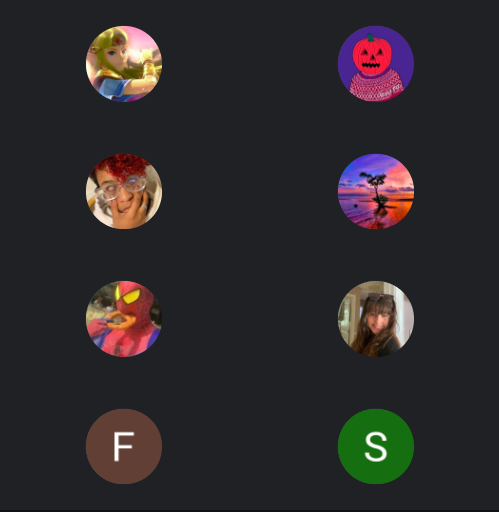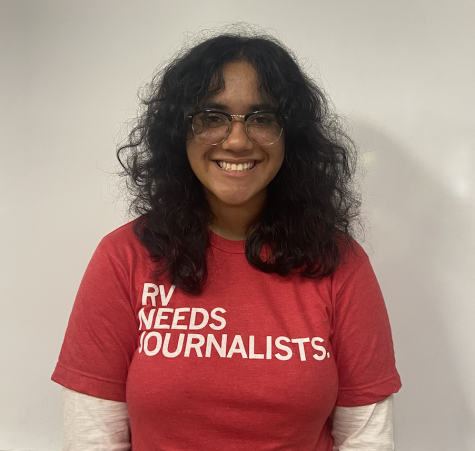Students should be able to turn their cameras off
Student right to privacy doesn’t end because we are online

Google uses icons to replace student faces when they are not on camera
December 23, 2020
In the words of California Congresswoman Jackie Speier (D), “Privacy isn’t negotiable. It’s the right of every American.” The new policy imposed by Rancocas Valley Regional High School states that students must turn their cameras on because their peers are going to school in-person, but this rule invades the privacy of students at home since students are obligated to show their home environment.
For starters, the Behavior Guidelines of RVRHS’s Policies and Procedures states, “Students are considered under the supervision of school personnel from the time they leave to attend school, while at school and until they reach home after school.” As students are at home and not on school grounds, the responsibility of being watched is not given to the student’s teacher, but the student’s guardian. Unless the teacher has suspicions or is concerned about the student’s wellbeing, teachers should not be obligated to surveil the student unless they are not present in the classroom.
Secondly, the diagnosis rate of mental illness in students has increased exponentially during quarantine. Recent studies from psychiatry professor Rima Styra and her University of Toronto colleague Laura Hawryluck show that 29% of those quarantined showed signs of PTSD and 31% had symptoms of depression succeeding in isolation. Students have been separated from the world for months and are likely to fall victim to these statistics. With the added stress of school and the pressure to focus on a computer monitor for hours a day in order to seem like they are paying attention, students’ anxiety and stress levels increase because of the idea of being watched by their peers in an environment that is supposed to be a comfortable place for a student to relax.
Finally, the private life of a student’s family is a valid concern. Some students want to keep their home life private from their peers. In an environment where a student likely shares a place with others, they can not control the actions of someone else. These actions can range from barging into a student’s room, parents fighting in the background or siblings occupying the same room for their classes. Students cannot control these conditions and are likely to be subjected to judgment from their classmates.
In addition, RVRHS has one of the biggest economic differences among incoming-middle school districts in New Jersey. Students’ home lives are different based on living conditions, cultural diversity and family life. Their privacy should be respected because of the lack of comfortability a student may feel when their classmates invade their home life. As a school district, RVRHS should prioritize their students’ privacy rather than forcing students to turn their cameras on because it shows sensitivity to the students and their home life.
All in all, students should make the choice of whether or not they are comfortable enough to turn on their cameras. Students should not be forced because this can affect the students’ mindset negatively. If a teacher is concerned or has a suspicion about a student, they are allowed to issue an investigation to the school, however, teachers should be able to trust that their students are present in class.





